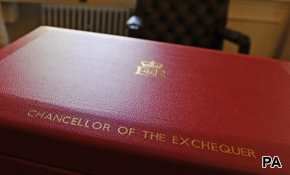What would you do if you were the UK’s Chancellor of the Exchequer? We ask panellists what they think
Those of us who are interested in politics will have something to say on how the country is being run at some stage or another. Inevitably, as the saying goes, 'you cannot please all of the people all of the time'. Yet politics thrives on the question: what can we do differently, and better – and this is just the question we asked you in our latest PoliticsLab poll.
If you were free to take on just one role in the UK cabinet, which one would it be? What idea, policy or initiative would you introduce, to really put a stamp on your time in government?
Hundreds of you took part in our challenge to outline your own policy idea. In the first of our policy-pitching series, we look at what participants wanting to take over the Chancellor’s job would do if they had the chance.

DISQUS DEBATE
Which of these policy ideas do you think you could get behind, and which are pie in the sky?
What would you do with your time at The Treasury? Let us know in the comments below

Why would you want to be Chancellor of the Exchequer?
There was a unanimous answer: the Chancellor’s role is diverse, highly demanding, but most of all, central to UK politics, said participants. In fact “the economy is politics”, explained one PoliticsLab participant. “Any budget is a statement of political intent and priorities,” expanded another.
“In that respect, the Chancellor has more power than any other member of the Cabinet, and potentially more power than the Prime Minister, to set the political agenda.”
So what did our would-be Chancellors propose?
What would be your ‘big’ policy as Chancellor?
A few thought about how they would shake things up at a global level. Others put boosting business, targeting bankers, and tackling behaviour at the heart of their policy initiatives. Most participants, however, wanted to address the tax system.
Let’s talk about tax
Tax is a contentious issue – any government will tell you. Here, we look at the range of ideas PoliticsLabs’ participants put forward in this area.
 Helping those on low incomes…
Helping those on low incomes…
In the run up to the general election in 2010, Liberal Democrat leader, Nick Clegg, made a popular pledge to raise the amount of income that could be earned before tax from £7,475 a year up to £10,000.
Several participants followed suit with their own policy proposals.
Some said they would increase the personal allowance to Clegg’s £10,000 level, to take the lowest paid people out of the tax system altogether. Those on the lowest rungs of the income ladder would then have “a liveable personal income”, made possible it was said, by putting higher taxes on wealthier people (see below).
In April 2012 the Coalition is set to raise the minimum threshold from £7,475 to £8,105, at the turn of the financial year.
 …But targeting those on high incomes
…But targeting those on high incomes
Other would-be Chancellors said the answer was to target the highly paid.

Several suggested to ‘up’ the level of tax for ‘the rich’ (although just what level of income constituted ‘rich’ wasn’t broadly defined). In ‘office’, one participant would increase the amount of tax paid by all those earning £80,000 and above, and increase the top rate of tax to 65% (65p/£1), up from the current 50%.
In the UK the 50p tax rate was brought in under the last (Labour) government as a ‘temporary’ measure. But more than a year later, the 50p tax remains. A report by HMRC, commissioned by George Osborne into just how much in revenue the top rate of tax generates, has shown that the 50p tax raises “hundreds of millions of pounds” . Despite being a source of tension within the Coalition, it is thought the 50p tax and its benefits to the economy are here to stay – at least until 2015.
 Creating tax benefits for everybody
Creating tax benefits for everybody
Taking a counter approach, our research found that other Chancellors would cut taxes across the income spectrum.
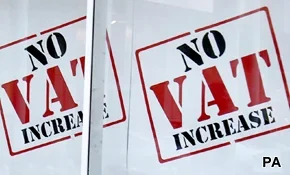
One participant would, for example, reduce income tax rates to 10% across the board. “Low tax gives people more incentives, and cash in their pockets”, they reasoned, which would boost the economy as people find they have more to spend. Another would make it 20% for all earners (the current bottom rate of tax). Others suggested slashing VAT, e.g. to 15%, down from its current 20%, by way of reinstating consumer confidence, as suggested by ‘K’ from Devon:
“It would cut the cost across the board, allowing manufacturers to produce for less, and so commodities, transport, etc., would cost less, and therefore get the economy going again”
Or even, reducing VAT to 5% for “essential items”, but increasing it to 25% for “luxury” goods. Other chancellors advocated lowering fuel costs – “60p off a litre of petrol until the country is back on its feet” – or cutting fuel duty.
 Focusing on banks
Focusing on banks
A smattering of chancellors got behind George Osborne’s proposal to separate investment from retail banking. However, a few aspirants had their own ideas for running the banking sector.

One participant wanted to create ‘a bank for the people, run by the people’, to which all tax, VAT revenues and national insurance contributions would be paid. The ‘people’s bank’ would be used to “lend to all”, whether for homes, businesses, or a loan for a car. It would also charge a higher interest rate on loans that would help pay for the NHS, schools, and other public projects.
With 84% of RBS and 43% of Lloyds already owned by the taxpayer, another participant would want to go the whole hog and nationalise all of Britain’s banks (however, they didn't specify exactly what benefit this would have).
Among those who took part there was little or no support for banks' bonus culture. In fact, one proposed that, “if the economy is depressed, [there should be] no banker bonus”.
 Creating a whole new tax?
Creating a whole new tax?
In a quest for simplification, the real Government has said it will eventually merge income tax and national insurance contributions. But one set of Treasury heads among our panellists wanted to come up with a whole brand-new set of taxes.
Some participants thought they might be able to patch up tensions they saw in society with targeted or ‘ring-fenced’ tax schemes. One idea proposed involved putting an additional tax of 7.5% on individuals earning more than £75,000 a year. The money generated would be driven into public services in their local area, and to help the worst-off in their neighbourhood. “This would not only mean the rich were contributing more, but it would also improve the relationships between the richest and the poorest in our society, and improve society overall”, reasoned one ‘Chancellor’.
A similar idea was to put “an extra penny on income tax with all the revenue going into care for the elderly. Or an extra 5p in the short-term, specifically to pay down the deficit”. The participant would take this even further to “replace National Insurance with three ring-fenced taxes to pay for NHS and sickness benefits, unemployment services and benefits, and for state pensions.”
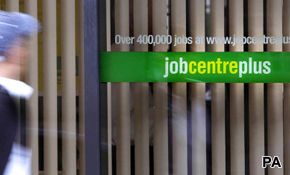 But not everyone was as keen to protect the public sector. Instead several participants spoke of cutting it back, and cutting down on government spending, in ways which supported the Coalition’s pre-existing budget plans.
But not everyone was as keen to protect the public sector. Instead several participants spoke of cutting it back, and cutting down on government spending, in ways which supported the Coalition’s pre-existing budget plans.
A 20-year-old undergraduate from Leeds had other designs. ‘Tuma’ would introduce a targeted taxation scheme to tackle youth unemployment in the UK, by boosting competition. (Currently, more than a fifth of young people aged 16-24 are out of work).
“As Chancellor I would implement a new tax on banks that would go to funding all 16 – 25 year-old NEETS with skills directly related to employment…more needs to be done to give people my age a competitive edge…We only focus on degrees in this country [but]they are NOT everything. Look at Germany: they fund both academic and skills education which is why their economy is so diverse.”
Another participant proposed introducing a “local income tax”, which would be “spent for the benefit of the area in which it’s collected”, by devolving tax-raising powers –and therefore spending – from central government. However, some pointed out that if such an idea was intended to replace all input from central government, this could raise concerns about the potential for ‘ghettoising’ poorer areas in the UK.
 Tackling tax avoidance
Tackling tax avoidance
Tax evasion and ‘off-shore tax-free havens’, were given quite a hearing in the media in 2011. Several would-be Chancellors in our PoliticsLab spoke of ‘closing the holes in the tax system’ or tightening up corporation tax rules, in order to retrieve all the tax revenues that could be retrieved. “Make sure that all the people who should be paying tax actually do so, and the UK would look like a very different place”, argued Julie, from southern England. A number of participants said this would be their general principle in government. One participant, Simon, from south-west England, went into even more precise specifics:
“I would seek to abolish all personal income tax on earnings, and replace it with a tax on all purchases as a single flat rate. This does away with VAT, and makes tax avoidance almost impossible”
 Helping British businesses
Helping British businesses
Concerned about the health of UK business, other PoliticsLab participants put forward their ideas for giving it a boost. They were united in their desire to build-up Britain’s industrial and manufacturing sectors by driving funds into innovations and engineering: “to tilt the UK economy back towards industry and commerce and away from the financial sector,” Richard from Oxford argued.
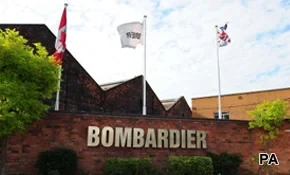
Britain should aspire to be the “foremost authority on engineering and new initiatives”, agreed Darren from Newcastle, and match this ambition with funding and new technologies.
But how to kick-start this?
Across the responses from participants in this vein, there was a similar thought – to take a localised, bottom-up approach. Paul from Norwich, for example, suggested “introducing a tax credit for all new start-up companies who satisfied a statutory business plan, and were employing ten people by the end of their second year’s trading at least.”
Hugo from Lancaster added:
“I’d get Britain moving towards a more decentralised economy by focusing on funding for small and medium businesses, especially in the manufacturing sector. Creating opportunities this way is the best way to invigorate the economy and would encourage individual enterprise and responsibility.”
Whatever your vision, make it transparent
Yet, regardless of what shape policy takes, all of the Government’s economic activity should be transparent, some of our PoliticsLab respondents argued.
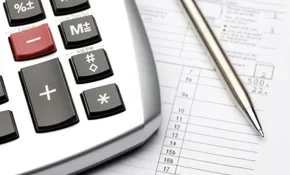
Campaigning to educate the public in economics might help drastically, said one: “I would make government finances open enough so that people could have an understanding of them as they do their own finances.”
But why stop there in ‘making transparent’ the ins and outs of the UK economy? Why not make it possible for the financial details of each and every person in the country accessible to everyone by law, precisely as this would-be Chancellor panellist from Northampton suggests below?
“As Chancellor I would openly publish the nation's tax returns. Allow the full list to be searchable, by anyone, fully indexed and free. This would let the public see exactly what people and companies are earning, and what they are paying. Try hiding tax avoidance then, in front of millions of prying eyes.”
Whether or not you’d take such a drastic approach, what is clear across this PoliticsLab role-playing exercise is the real hunger there is for bringing the UK economy back to strength by finding a different route through. Maybe Chancellor George Osborne should take note...

DISQUS DEBATE
Which of these policy ideas do you think you could get behind, and which are pie in the sky?
What would you do with your time at The Treasury? Let us know in the comments below

